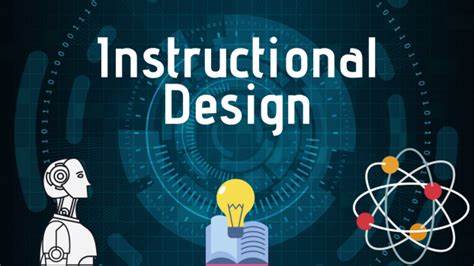B
Let’s delve into the future of Instructional Design in 2024
Navigating the Future: Instructional Design in 2024
In the dynamic landscape of education and professional development, the role of instructional designers has become increasingly pivotal. As we step into 2024, the field of instructional design continues to evolve, embracing innovative technologies and methodologies to create engaging and effective learning experiences. In this article, we explore the key trends and challenges facing instructional designers in 2024 and how they are shaping the future of education and training.
The Changing Landscape of Instructional Design
Instructional design in 2024 is marked by a paradigm shift towards learner-centric approaches and the integration of emerging technologies. Designers are no longer simply creators of content; they are architects of immersive, personalized, and interactive learning experiences.
1. Personalized Learning Paths
One of the notable trends in instructional design is the emphasis on personalized learning paths. In 2024, instructional designers are leveraging advanced analytics and artificial intelligence to tailor learning experiences based on individual learner profiles. This approach ensures that learners receive content that aligns with their preferences, strengths, and areas for improvement, fostering a more effective and engaging learning journey.
2. Integration of Augmented and Virtual Reality
The integration of augmented reality (AR) and virtual reality (VR) technologies has become a game-changer in instructional design. In 2024, designers are creating immersive simulations and virtual environments that allow learners to apply knowledge in real-world scenarios. This not only enhances the learning experience but also provides a safe space for hands-on practice, particularly in fields where practical application is crucial.
3. Microlearning for On-Demand Knowledge
In the fast-paced world of 2024, learners seek on-demand knowledge that is easily digestible. Microlearning, the delivery of content in short, focused segments, has gained prominence. Instructional designers are breaking down complex topics into bite-sized modules, catering to the needs of learners who prefer quick, targeted bursts of information.
4. Collaborative and Social Learning
Collaboration and social learning are integral components of instructional design in 2024. Designers are incorporating collaborative tools, discussion forums, and social platforms to encourage interaction and knowledge-sharing among learners. This fosters a sense of community and enhances the overall learning experience.
5. Adaptive Learning Platforms
Adaptive learning platforms have become central to instructional design strategies. These platforms use data-driven insights to dynamically adjust the learning journey based on individual progress and performance. Instructional designers in 2024 are harnessing the power of adaptive learning to ensure that every learner receives a customized and effective learning path.
Challenges in Instructional Design
While instructional design in 2024 is marked by innovation, it is not without its challenges. Designers must navigate the complexities of rapidly evolving technology, changing learner expectations, and the need for continuous upskilling. Staying abreast of the latest trends and embracing a growth mindset is crucial for instructional designers to thrive in this dynamic environment.
The Future is Bright for Instructional Designers
As we navigate the intricacies of instructional design in 2024, it is evident that the future is bright for professionals in this field. The role of instructional designers is expanding beyond traditional boundaries, encompassing a blend of creativity, technological proficiency, and a deep understanding of learner needs.
In conclusion, instructional design in 2024 is a multifaceted journey into the future of learning. The fusion of personalized learning paths, immersive technologies, microlearning, and collaborative platforms is reshaping the educational landscape. Instructional designers are at the forefront of this evolution, guiding learners through a dynamic and transformative educational experience. As we embrace the opportunities and challenges that 2024 presents, instructional designers play a crucial role in shaping a future where learning is not just informative but also inspiring and impactful.



